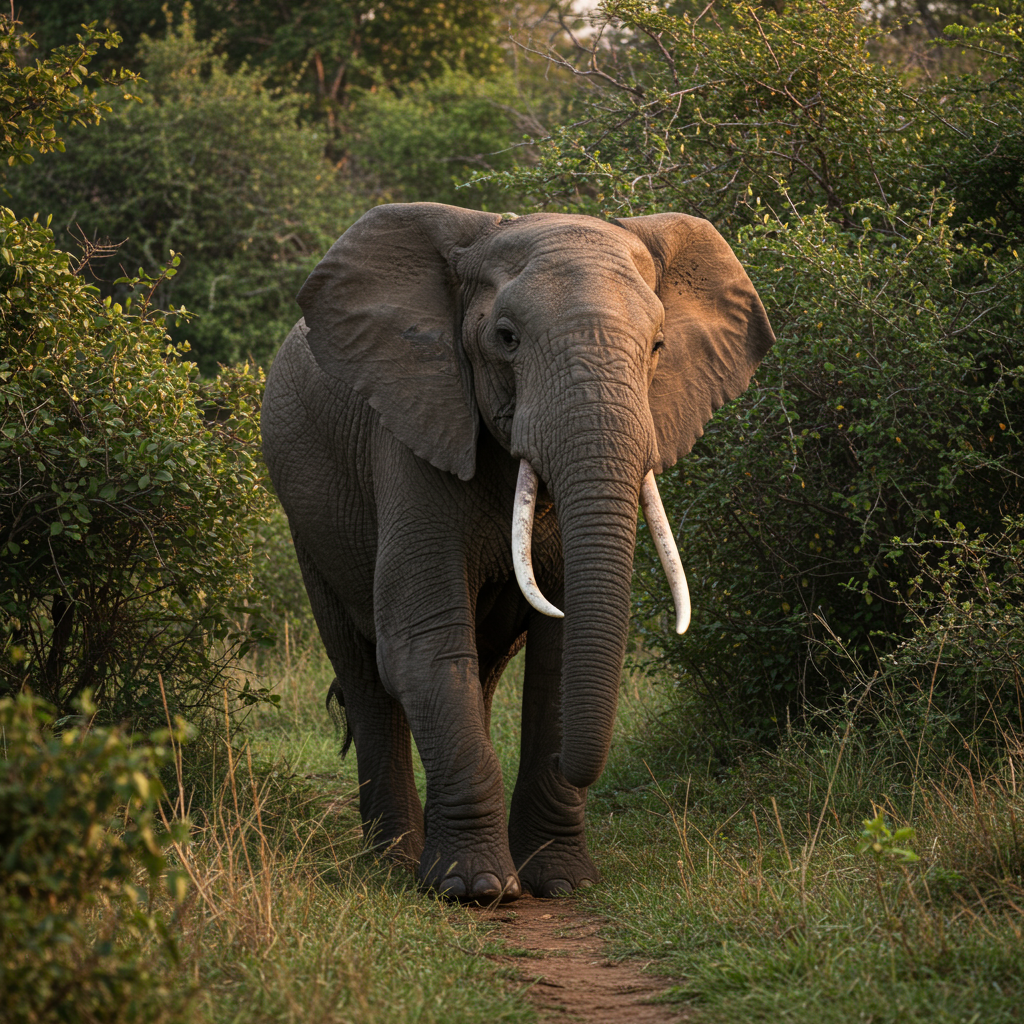A devastating incident unfolded in Zambia’s South Luangwa National Park recently. Two elderly female tourists tragically lost their lives during a walking safari. They were killed by a charging elephant. The victims hailed from the United Kingdom and New Zealand.
This heartbreaking event highlights the inherent risks involved in encountering wild animals in their natural habitat. Officials have confirmed the details surrounding the attack.
Tragic Encounter Details in South Luangwa
The fatal encounter occurred shortly after 6 am local time on a Thursday. The date was reported as July 3, 2025. The two women were on a walking safari in South Luangwa National Park. This park is located in eastern Zambia, approximately 600 kilometers (370 miles) from the capital city, Lusaka.
Eastern Province Police Commissioner Robertson Mweemba identified the victims. They were 68-year-old Easton Janet Taylor from the UK and 67-year-old Alison Jean Taylor from New Zealand. The women were reportedly guests at the Big Lagoon Bush Camp. They were walking towards either another part of the camp or Takwela Camp at the time of the attack.
According to police and other reports, the group spotted a female elephant in the distance. The elephant was accompanied by her calf. The safari group attempted to change their path. They reportedly diverted by about 50 meters to avoid the animal.
Unpreventable Attack Despite Efforts
Despite the diversion, a “tea bearer” walking behind the group alerted them to the elephant. The animal was charging at high speed. The charging elephant targeted the two women. Alison Jean Taylor, who reportedly had a “leg problem,” was caught first by the animal.
Safari guides accompanying the group reacted quickly. A Wildlife Police Officer also fired warning shots. The guides themselves attempted to deter the elephant further. They fired shots at the animal. The elephant was hit and wounded by the gunfire.
However, these desperate efforts proved unsuccessful. The guides were unable to prevent the elephant from reaching the women. Both Easton Janet Taylor and Alison Jean Taylor died at the scene as a result of the powerful attack. The incident happened too swiftly despite the presence of trained guides.
Understanding Elephant Behavior and Park Context
The behavior of the female elephant is often attributed to strong maternal instincts. Female elephants are known to be fiercely protective of their young. They can react aggressively if they perceive any threat to their calf. This natural instinct, while understandable for the animal, presents significant risks to humans who venture close.
South Luangwa National Park is renowned for its dense concentrations of wildlife. It is one of Africa’s premier wildlife destinations. The park covers approximately 9050 square kilometers of the Luangwa Valley. It was established as a game park in 1904 and became a game reserve in 1938.
Due to the abundance of animals, encounters are common. Visitors are often advised that elephants may wander in and out of camps. They have a habit of making themselves welcome, as the park’s website notes. While usually passive, their sheer size and protective instincts can make unexpected encounters extremely dangerous.
Reports indicate the victims had spent four peaceful days at the camp prior to this tragedy. They were remembered for their courage, curiosity, and “love for life’s wild places.” Their bodies were transported to Mambwe District Hospital. The New Zealand High Commission is providing consular assistance.
Previous Incidents Highlight Risks
Tragically, this is not the first fatal elephant encounter in Zambia in recent times. The incident follows at least two other deaths involving elephants and tourists in the previous year (2024). Both previous victims were also elderly American women.
One incident involved Juliana Gle Tourneau, a 64-year-old from New Mexico. She was killed by an elephant on June 19, 2024. This attack occurred near the Maramba Cultural Bridge in Livingstone during a safari drive. Her group had stopped due to traffic caused by a herd. Individuals reportedly left the vehicle, which was explicitly against National Park regulations.
Another past fatality was Gail Mattson, a 79-year-old from Minnesota. She died during a game drive in Zambia’s Kafue National Park. In her case, an elephant charged the safari vehicle she was in. The charge resulted in the truck being flipped over. Five other people in the vehicle were also injured.
These repeated tragedies underscore the unpredictable nature of wildlife. They also raise questions about safari safety protocols and the inherent dangers of being in close proximity to powerful wild animals. While safaris offer incredible opportunities to witness nature, visitors must remain aware of the potential risks. Adhering strictly to guide instructions and park regulations is paramount for safety.
Addressing Safari Safety Concerns
Safari tourism is a vital part of Zambia’s economy. It also plays a crucial role in conservation efforts. However, balancing human safety with wildlife preservation is a continuous challenge. Incidents like the fatal elephant attack highlight the need for stringent safety measures.
Walking safaris offer a more immersive experience than vehicle safaris. They allow visitors to feel more connected to the bush. However, they also put participants at greater risk during unexpected encounters. Guides leading walking safaris must possess exceptional knowledge and experience. They need to be highly skilled in reading animal behavior and managing potentially dangerous situations.
Even with expert guidance, nature remains unpredictable. Factors such as terrain, visibility, wind direction, and the specific animal’s mood can influence outcomes. The instinct of a mother elephant protecting her calf is incredibly powerful. It can override attempts at deterrence, as witnessed in this tragedy.
Conservation efforts often lead to increasing animal populations. This can bring wildlife into closer contact with human settlements and tourist activities. Managing this interface requires careful planning, education, and robust safety protocols. Visitors choosing to participate in safaris, especially walking safaris, must understand and accept the inherent risks involved. They should prioritize safety briefings and follow guide instructions without hesitation. This recent deadly elephant attack serves as a stark reminder of these realities.
Frequently Asked Questions
What happened during the elephant attack in South Luangwa Park?
A female elephant charged a group on a walking safari. The elephant was with her calf. Despite guides attempting to deter the animal, two elderly female tourists, one from the UK and one from NZ, were fatally attacked at the scene. The incident happened shortly after 6 am on a Thursday.
Why might the elephant have charged the safari group?
Female elephants are highly protective of their calves. The charging elephant was accompanied by hers. The animal likely perceived the safari group as a threat to her young. This powerful maternal instinct is a common reason for aggressive elephant behavior towards perceived intruders.
Is it safe to go on a walking safari in Zambia after this incident?
While walking safaris offer a unique experience, they carry inherent risks. This tragic elephant attack, and previous fatal incidents, demonstrate the potential dangers of encountering wild animals on foot or even in vehicles. Safety depends heavily on experienced guides, strict adherence to safety protocols, and understanding the unpredictable nature of wildlife. Visitors must weigh these risks and follow all instructions meticulously.
Conclusion
The loss of two lives in South Luangwa National Park is a profound tragedy. It underscores the fragile balance between human tourism and wildlife conservation. While authorities investigate the full circumstances of this specific elephant attack, the event serves as a critical reminder. Safaris in wild areas, particularly walking safaris, involve unavoidable risks. Experienced guides provide vital expertise. However, the powerful instincts of wild animals like elephants can lead to sudden, dangerous, and sometimes unavoidable encounters. Tourists engaging with wildlife must do so with utmost respect, caution, and a complete commitment to following safety guidelines provided by experts on the ground.




